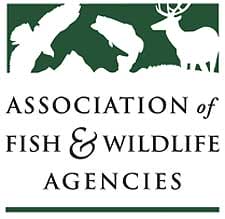
Washington D.C. – (Ammoland.com)- This morning the House Committee on Natural Resources passed by unanimous consent the “Modernizing the Pittman-Robertson Fund for Tomorrow’s Needs Act of 2018,” HR 2591.
Without increasing taxes or existing user fees, this bill will ensure user-pay funding of wildlife conservation for future generations, clarifies that a purpose of the Pittman-Robertson fund is to extend assistance to the states for outreach, communication and education of hunters and recreational target shooters, and allow states the ability to communicate with and recruit, retain and reactivate outdoor recreationists through modern means of communication.
“We find that our constituents have certain expectations of their state fish and wildlife agencies, specifically the ability to utilize more effective means of communications today. This bill will allow us the opportunity to meet those expectations while allowing us to continue to meet our wildlife conservation objectives and ensuring that funding for wildlife conservation will keep pace with the demands of our citizens and communities,” said Virgil Moore, President of the Association of Fish and Wildlife Agencies (Association).
“We thank Mr. Austin Scott (GA) the bill sponsor, Chairman Bishop and members of the House Committee on Natural Resources, and members of the Congressional Sportsmen’s Caucus for their continued support of the Pittman-Robertson Wildlife Restoration Fund and for helping to modernize this cornerstone law of wildlife conservation which has served our nation exceptionally well since 1937,” said Ron Regan, Executive Director for the Association.

The Association of Fish & Wildlife Agencies represents North America’s fish and wildlife agencies to advance sound, science-based management and conservation of fish and wildlife and their habitats in the public interest. The Association represents its state agency members on Capitol Hill and before the Administration to advance favorable fish and wildlife conservation policy and funding and works to ensure that all entities work collaboratively on the most important issues. The Association also provides member agencies with coordination services on cross-cutting as well as species-based programs that range from birds, fish habitat and energy development to climate change, wildlife action plans, conservation education, leadership training and international relations. Working together, the Association’s member agencies are ensuring that North American fish and wildlife management has a clear and collective voice.
